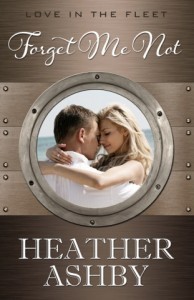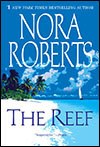Lorenda Christensen's Blog, page 10
February 9, 2014
Speculative Fiction for History Buffs
Alternate History is one of my favorite subgenres. When I searched for “alternate history romance” I was given a long list of steampunk romances, but that wasn’t what I was looking for. I vaguely remembered coming across a couple of genuine alternate history based romances, and between Google and one of those trivia files in the back of my mind I tracked them down, two long-out-of-print novels by Maura Seger: Fortune’s Tide (1990), set in a world where the American Revolution failed, and Perchance to Dream (1989) in which the Confederate States were victorious. Apparently that subgenre never took off, alas.
But the idea of alternate history has always been popular over on the science fiction shelves, although such stories don’t usually have a lot to do with science. Steampunk certainly presents an alternate Victorian world, but my suspicion is that it’s based more on technology and society than on history. I haven’t read enough steampunk to be sure, but I plan to remedy that. (In my spare time.)
I do have several favorite alternate history novels on my keeper shelves (and on my To Be Read stacks). Such stories generally have a point of change, sometimes called a hinge, some specific event that changes the course of history from what we know to what the author imagines. Some are straight history, while some add a fantasy or science fiction element.
Harry Harrison went way back in time for his hinge, setting the trilogy West of Eden, Winter in Eden, and Return to Eden (1984-1988) in a world in which the cataclysm that ended the age of dinosaurs 65 million years ago never happened, leading to conflict between the highly evolved dinosaur civilization and the rising Ice Age human race. Geeks like me will also enjoy the appendix detailing the biology, culture and language of the dinosaurs. And who can resist domesticated mammoths?
S.M. Stirling’s The Peshawar Lancers (2001) is set in twenty-first century India, now the seat of the British Empire, after a disastrous fall of comets in the 1870s destroyed much of Europe, changed the planet’s climate, and brought technological advance to a standstill. The book includes a set of fascinating appendices on history, technology and language. Stirling, a prolific author, has also written other alternate histories, including the dark and violent Domination series and two enjoyable novels based on Venus (The Sky People, 2006) and Mars (In the Courts of the Crimson Kings, 2008) as the inhabitable planets they were imagined to be a century ago.
Randall Garrett’s Lord Darcy novels (written in the 1960s and collected in one volume in 2002) have a big fantasy element (think CSI with magical technicians), but the world is the twentieth century as it might have been if King Richard the Lionheart had stayed home where he belonged, changing the course of British history with a long and successful reign. Lord Darcy himself has no magical Talent; he is a criminal investigator with a sorcerer assistant. Together they solve cases in tales full of in-jokes and references that will delight any mystery fan.
Jo Walton’s Small Change trilogy (Farthing, Ha’penny, and Half a Crown, 2006-2008) describes a world in which Britain made peace with Germany before WWII began, leading to a very different and dark mid-century. The books are mystery/thrillers tied together by a police detective with deep secrets of his own.
Harry Turtledove is the acknowledged master of alternate history, writing dozens of novels, many in long series, about everything from the survival of the Byzantine Empire to an alien invasion changing the course of the Second World War. Two on my shelf are Guns of the South (1992), in which time-travelers provide the Confederacy with AK-47s, and Ruled Britannia (2002), in which the Spanish Armada has conquered England, and Shakespeare is writing a play about King Philip. Turtledove has written something for everyone who loves history.
I could go on. And on. When I was planning this post I found a notice of a new book, Three Princes, by Ramona Wheeler, a novel of nineteenth century intrigue in a world dominated by the Egyptian and Incan Empires. How could I resist that? Hence a trip to the bookstore (I bought a steampunk romance, too, as long as I was there.)
Sharing these books makes me want to read them again–that’s why they live on my keeper shelves. And while I’m at it, maybe I should take a shot at writing an alternate history romance. Heaven knows I’m becoming an expert at writing in subgenres no one knows how to sell. Who wants to join me?
February 7, 2014
Fresh Starts: My Debut Release, Moving 4,000 Miles, and a Giveaway!
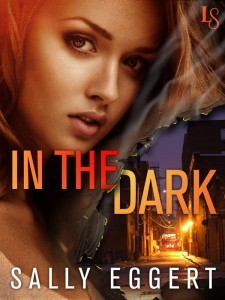 I recently celebrated the release of In the Dark, my debut romantic suspense novel, which was also my 2012 Golden Heart® finalist manuscript—the one that made me a Firebird! So what better way to mark the occasion than by blogging here? And to make it festive, I’ll be giving away a free e-copy of In the Dark to one lucky commenter (selected at random) in her choice of Kindle, Nook, or iBook format! Check the comment thread below on Saturday, February 8th to see if you’ve won! Click here to read the blurb and find out more about In the Dark!
I recently celebrated the release of In the Dark, my debut romantic suspense novel, which was also my 2012 Golden Heart® finalist manuscript—the one that made me a Firebird! So what better way to mark the occasion than by blogging here? And to make it festive, I’ll be giving away a free e-copy of In the Dark to one lucky commenter (selected at random) in her choice of Kindle, Nook, or iBook format! Check the comment thread below on Saturday, February 8th to see if you’ve won! Click here to read the blurb and find out more about In the Dark!
My husband and I recently made a big change in our life. We packed ninety percent of our belongings into storage, put our house on the market, and moved to another country. It has made me think of Josie, the main character of In the Dark, many times because of her recurring impulse to pull up stakes and get out of town when things get messy in her life. That’s an impulse I guess I could always relate to, but had never been sincerely tempted to act on. And in fairness, that’s not exactly what we did or why we did it. We accepted a temporary need to downsize our life for the sake of a wonderful new job for my husband, and a couple of years in a city we both love. I suspect the 4,000-mile-international-move aspect of our decision would have appealed to Josie immensely, if she’d had that option, though it was a source of nerves and complications for us. The process of sorting through our things involved some sad goodbyes, while Josie ditched everything she possibly could without a backward glance.
Josie and I are two very different people making very different decisions, but with one similar result—a fresh start. For her, the fresh start was the goal; for me, it is the silver lining. As much as I miss a lot of things we’ve given up, I don’t miss the home-improvement chores we’d been putting off, or the ruts I had gotten into in my old routine. I miss the homing-pigeon-like sense of where my nest is, but not the tangle of highways that used to surround it. I miss the extra space we used to have, but not the clutter we had allowed to usurp it. I miss the first home my husband and I ever bought, but I don’t have to miss him. He is the one thing I knew for sure would be with me every step of the way, which is the only reason I knew I could handle the rest of it.
What does Josie miss? A lot of things she is determined not to think about. She did her best to leave those feelings behind along with her abandoned possessions and her old life. While we were running toward something new and exciting, she was running away from something old and sore, something painful and frightening. She got her fresh start, even if it was mainly a life-wide pair of blinders she was putting on, but then along came Johnny to make her remember how it felt to want something more from her life, whether she was ready to or not.
So maybe the missing is inevitable. Maybe it’s the price of every fresh start, whether it’s an unfortunate side-effect, or the nagging feeling in the back of your mind—or maybe in your heart—that will ultimately force you to face something you’ve been running from.
What do you think? Have you ever craved a fresh start? What would you miss the most? Would it be worth it?
February 5, 2014
Crossing Genres: Why I’ve Decided to Expand My Writing Horizons
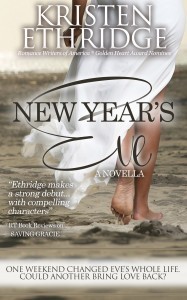 If you’ve been a reader or a writer for a while, you know that the one constant in the publishing industry is that things change. Then they keep on changing. As an aspiring writer, I shelved two really good manuscripts because the market had changed by the time I had them out looking for a home with an agent or editor. (I’M LOOKING AT YOU, CHICK LIT.)
If you’ve been a reader or a writer for a while, you know that the one constant in the publishing industry is that things change. Then they keep on changing. As an aspiring writer, I shelved two really good manuscripts because the market had changed by the time I had them out looking for a home with an agent or editor. (I’M LOOKING AT YOU, CHICK LIT.)
I was fortunate enough to earn a contract with Harlequin a year ago, writing for their Love Inspired line. I’ve been a reader of Love Inspired, Harlequin’s inspirational imprint, since the line debuted when I was in college. I love stories of love, laughter, and happily ever after…and I truly believe that God’s love is the greatest happily ever after of all time. I enjoy writing inspirational romance–and the biggest joy in my job is getting a note from a reader that a line or a theme in my book spoke to them. I received one of these just this week, and was so touched that God used a line that I wrote four years earlier to touch a reader’s life today.
But what about all those other stories I had in drawers and my head? Seriously, friends…the imaginary people…they won’t stop talking to me! (I’m so glad to be among writers and readers who GET what I mean when I say that.)
I had a dilemma, though. A lot of these stories were not inspirational and they were of lengths that didn’t fit the Love Inspired line. I started looking into self-publishing, and by the end of last year, I made a plan. New Year’s Eve, my first sweet contemporary novella, released in January. The Cupid Caper will release just before Valentine’s Day, and Lucky in Love will be out in time for St. Patrick’s Day. All of these stories in my new Holiday Hearts novella series (and there are three more scheduled for later in the year!) are heartwarming stories of finding love at some of the most special times of the year.
I’m also excited about these stories because I know that my readers who fell in love with Saving Gracie will still love these titles. Sweet contemporary, for those of you who don’t know, is a subset of contemporary romance that has a low heat level (all the “business” gets taken care of on the other side of a closed door, if it appears at all) and keeps out content that some readers may not be comfortable with, such as bad language.
There are many similarities between an inspirational romance and a sweet contemporary romance. In fact, the main difference is the faith element. In an inspirational romance, not only do you have to have a story arc for your characters that chronicles their growing love, but there needs to be an arc for either the hero or heroine (or both) that shows their faith journey as well. In Saving Gracie, both Jake and Gracie discovered true love, but they also discovered new dimensions to their faith. Gracie’s faith was tested when everything she worked to build began to crumble, and Jake found a family legacy of faith he never knew existed.
I’m excited about expanding my horizons and I think it’s good for readers as a whole. There are so many high-heat stories available, but outside of Georgette Heyer’s Regency romances, not too many readers can name authors who write sweet stories. I believe that my readers will enjoy a wider variety of stories–from inspirational romance, to contemporary romance stories everyone can read, and quirky tales that will hopefully make them laugh–yes, I’m even self-publishing that Chick Lit around Memorial Day! I’d love it if you joined my blog community and my Facebook page to keep up with my release schedule!
What about you? Do you ever read books that close the door on hotter scenes? Do you think there’s a market for sweet romances? New Year’s Eve went to #1 on the Kindle Holiday Fiction charts, so I think there is…what about you?
February 3, 2014
From Resolutions to Reality…and Back Again
It’s a little over a month since New Year’s Day. This is usually the time where I look back, and realize I’ve failed miserably at a good number of my New Year’s Resolutions. My desk has lost its well-organized look, I’m back to watching television from the bed instead of the rowing machine, and that unsweet iced tea has morphed into full-sugar Pepsi with a side of chocolate.
Resolutions are hard. And at some point in our lives–usually around this time of the year–we are going to FAIL. And you know what? That’s okay.
At my day job, I’m an accountant for a large local hospital system. I do a variety of accountancy-related things, from journal entries, to programming, to budget meetings. The budget process is usually a five or six month event, starting with pulling last year’s detailed financial statements. At that point, we start sitting down with department managers, and start creating a final list of amounts that have been adjusted based on various questions. Are we expecting an increase in volumes next year? Do we expect to buy any big stuff that we might take out some loans on? Are we hiring new people? Getting a new benefits plan? Changing the way charge for services? The list goes on and on. We spend countless hours sifting through numbers, trying to find a combination that makes sense. At the end, we have a brand new set of goals (or resolutions) for the company as a whole. The budget is a beautiful, shiny thing.
But I’m going to let you in on a little secret…I’ve been in this field for over ten years now, worked at four different companies in three different industries, and I have NEVER ONCE seen a budget that was spot on in hindsight. Sometimes the differences are good things: revenues were higher than anticipated, a deal was cut with a vendor that saved us thousands of dollars in expenses, or we received a sizable donation from a sponsor (non-profits!) But sometimes the differences aren’t so exciting: Federal payout percentages were adjusted down, an office space flooded and insurance didn’t cover it all, or we just plain forgot to include something in our estimates.
“So,” you’re asking me, “why in the world do you spend half a year putting together a list of numbers that YOU KNOW are wrong?” And my answer to that is this. Because we need to see where we are going, and we need to take the time to PLAN out where we are going. That way, during the year, we have a physical, official idea of what we want to do as a company. An idea we really had to think about. The yearly budget is our backdrop for what we do as a business. Our rails. Our road-map.
Because every business–whether it’s a huge hospital system or a single author with big dreams–needs a road-map for continued success. Huge convoluted financial plans or a simple list of things that need to get done; it’s important to sit down and reaffirm what it is you’re doing, and where you want to end up.
And if we realize later that our road-map was closer to a kindergartner’s art project than Picasso’s paintings, we admit it, and we do better next year.
And this is the point of my post. Goals are important, useful things. And in my writing life, I need the structure that yearly goals provide. Finish x books this year. Take classes on x so I can do it better. Set aside x days to just relax. And if things fall apart, I remind myself that it’s not the end of the world. I do the best I can, and when next year rolls around, I adjust my plans accordingly. Budgets (and goals) are a tool. They aren’t created to cause you stress. (Though some department managers might disagree with me!) They are there to help you remember what’s important to you, and to serve as a guide when real life steps in.
So if you made resolutions (your “budget”) this year, I urge you to sit down and take a look at them. To they still look reasonable? If not, make a note of it, and determine why. Where they bad estimates? Do you need to make a process change to make them work? Or are they simply not lining up with where you wanted to go?
The good news is – you aren’t a corporation. Once the budget is in, my department doesn’t get to change it. (Monthly forecasts? That’s a completely different story!) But if you find that your resolutions are no longer lining up with who you want to be as an author, a person, a mother, whatever…change them! And start walking in the right direction.
And for those of you out there who ARE still reading this from the rowing machine instead of the bed? I salute you.
January 31, 2014
Dancing with Dragons
If Carol Jenski knows anything, it’s fashion—and it’s not in fashion to consort with dragons, even though they’ve coexisted with humans since World War III. Still, she would never have agreed to take part in a plot against them. Now a dragon lord has called for her head, her boyfriend is MIA and she’s been abandoned in a foreign country.
Only reporter Daniel Wallent is on Carol’s side…sort of. He offers his assistance if she helps him investigate his latest story. He’ll need Carol’s language skills to infiltrate in the organization run by one of the most dangerous and secretive dragons in the world.
Escaping one sociopathic dragon’s claws only to walk into another’s is an insane risk—and so is falling for Daniel. Posing as his blushing—and very affectionate—new bride as cover soon leads to an all-too-real attraction. But fighting off dragons and her desire for Daniel may be more of a challenge than Carol can handle…
January 30, 2014
Meet Sky Crawford – the hero in Heather Ashby’s, “FORGET ME NOT”
G’day, readers. Welcome to Heather Ashby’s interview about, FORGET ME NOT, the second instalment in her Love in the Fleet series. Just like with Book 1, half of Heather’s royalties benefit Fisher House Foundation, a charity that supports wounded warriors and their families. Here’s a little something about FMN:
Suffering from Peter Pan Syndrome and survivor guilt, Navy helicopter pilot and renowned playboy, Brian “Skylark” Crawford, swears he’ll never marry, uncertain he deserves happiness—besides there are too many hot chicks to choose from. War widow and veterinarian, Daisy Schneider, swears to love only animals after her Marine pilot husband is killed in Afghanistan—but work fails to ease her loneliness or the guilt that she might have saved him. Between one stray, matchmaking cat and a fiery battle with drug runners at sea, the fur flies as Sky and Daisy learn valuable lessons about life, love, and second chances.
Here to chat with us today is the hero of FMN, Lieutenant Sky Crawford, whom we met as the Alpha male wingman of the hero in Forgive & Forget. He was apparently a hit with the Golden Heart judges in 2012, who named Forget Me Not a finalist. (Cat on A Hot Steel Flight Deck)
So, Sky. Thanks for joining us on this Firebird blog.
Thanks for inviting me, sweetheart. Um, you’re married, right? Just checking. Always need to know my parameters before I strike up a conversation with a beautiful woman.
Aww. (blushing). You’re quite a charmer, Lieutenant. And yes, I’m married. So we better get back to your interview. Let’s see . . . So, Sky, how does it feel to have a whole book devoted to you?
Aw, I love it. Not only do I get to meet Daisy (and try to sweep her off her feet, even though she doesn’t fall for my BS), but I also get to share the other love of my life, my Navy MH-60R Seahawk helicopter. BTW, that “R” stands for Romeo, making me a Romeo pilot. How’s that for branding? FMN also tells how Navy helo crews perform drug interdictions at sea, because I say any day I get to ruin a drug runner’s day is a good day.
Sounds like an exciting and important job. The ladies must love your uniform. You have your own fan page on Facebook, right? Oh, who am I kidding, I’ve already liked it! What can your fans expect from that page?
Well, my FB page – like this interview – is “BD” (before Daisy) so I get to flirt with all the women who “Like” me. Surely there are readers out there who are sport flirters, like me. And there are those who just want someone to make them feel special and call them sweetheart now and then.
I have to admit, when you say it, Sky, it makes me all giddy J So, what three words best describe Forget Me Not?
Humorous, harrowing, healing (and of course, “Hot” since it’s about me.)
I would add “Heartfelt” :-) What about you? Three words that best sum you up?
Hot, Happy, Hilarious
Don’t forget “Heroic” :-) Would you also describe yourself as a romantic guy?
Absolutely. But none of my usual moves seem to work on Daisy.
Tell us something else about you that would surprise us.
I’m a man of honor. Honestly. I don’t want to give any spoilers, so you’d have to read Forget Me Not to see how honorable I am, deep down, beneath all my jokes, flirting, bravado, and hot air. And if this doesn’t go any further, I’ll let you in on another little secret. I’m not always happy and hilarious. I got some…um… issues. See, I lost my co-pilot in a flight accident early in my Navy career and I never quite got over it. Always wondering if, maybe, there was something I could have done to…you know… save him. I think I have a handle on it, and then, WHAMMO, another nightmare. Confidentially, it’s why I never spend the entire night with a woman, always afraid I’ll fall asleep and…um…have a bad dream. But hey, I rescued this stray cat recently and since Siamese cats are very much like dogs, she wakes me up before my nightmares get out of hand. So, see, I got a handle on everything. I’m fine. Really. Honestly.
Um, yeah. Good luck with that, Lieutenant. You know, I’m sure there are a few women out there who wouldn’t kick you out of bed for some nightmares. What are you looking for in the perfect woman? What makes your head turn?
Women make my head turn.
LOL. Do you believe in love at first sight?
Yes, I fall in love with every woman I see, at first sight.
I think I’m beginning to see Dr. Daisy’s reservations :-) So, to wrap this up, what’s your best advice for the lonely hearts out there?
Call me.
:-) Yes, and there’s always your Facebook page. Thanks for a great interview, Sky!
Great chatting with you and thanks for the fun interview, Catherine. If your readers would like to read more about me, check out these blog posts, and I’ve also included the link to my Facebook page below.
https://www.facebook.com/SkyCrawfordFanClub?ref=hl
http://drusbookmusing.com/2013/12/10/sky-crawford/
http://www.justcontemporaryromance.com/2013/12/hello-sweetheart.html?
So readers, what are you looking for in the perfect man?
January 28, 2014
The Importance of Secondary Characters
Secondary characters are vital in films and books. They inhabit the story in order to add breadth and depth to the main characters and to give them relevance. Everything about a secondary character revolves around the main characters. Let me show you what I mean.
Here is the logline for The Seduction of Sarah Marks, due to release in June through Entangled Publishing. We’ll use this story as examples of how a secondary character revolves around the main characters:
When a proper Victorian miss awakens next to a handsome stranger, she must rely on the viscount’s benevolence as she struggles to regain her memory and hold onto her heart.
Because of the serious theme of amnesia, and because of Sarah’s prim and proper sensibilities, I felt the story would work best if I offset her dire predicament by giving the hero, Augustus Malvern, Viscount Eastleigh, a colorful and boisterous family, one completely contrary to Sarah’s staid nature. In the beginning of the story, we get to know a bit about how she and lord Eastleigh react to one another. Not only are we privy to an unwanted attraction, we learn that despite Sarah’s circumstances, she displays an underlying strength and force of will that Eastleigh finds compelling. Along the way to his estate in a rented carriage, I begin to introduce Sarah to Eastleigh’s unusual family before she or the reader meets them in the flesh. Here’s the discussion regarding his grandmother:
“I should warn you of my family before we arrive.”
“Warn me?”
Eastleigh grinned. “Everyone should have fair warning of the Malverns.”
Sarah’s back stiffened. She clasped her hands in her lap. “Pray tell.”
“Mum lives with me. Actually, she’s my grandmother. Mum is…that is—” Devil take it, he sounded like a schoolboy.
“She raised you?”
He laughed outright. “Isn’t that a rich thought, but no. Mum is a bit…well, we aren’t quite sure whether it’s her age or the gin she tipples, but suffice it to say, she says and does whatever she pleases. And her memory isn’t much better than yours.”
Sarah’s cheeks flushed.
He could have kicked himself. “Sorry, ghastly turn of words.” God’s blood, where was the woman’s sense of humor? She’d likely not any to begin with, since an amnesiac’s personality rarely changed. “She’s called Mum, by the by, because she fancies herself the Queen Mother and thinks my mother to be the Queen.”
At the thought, he swallowed a chuckle. “I sent a messenger ahead to alert my physician and Mum of your condition. Hard telling how you’ll be greeted.”
Sarah’s gaze caught his. “What an odd way of putting things.”
A corner of his mouth twitched. “Isn’t it though, madam?”
In that scene, Sarah and the reader have been put on notice that something out of the ordinary will occur once the carriage reaches its destination. As the carriage rattles on toward Eastleigh’s home, he dispenses hints regarding his eight raucous siblings and one handsome rogue of a cousin referred to as Lord Crocodile because of his snap—more world building. Here’s a scene when they arrive at Eastleigh’s estate with only Mum and the physician present:
Sarah couldn’t take her eyes off Mum’s enormous red hat and the stuffed bluebird perched on the brim. Were those tiny eggs in the nest real? And oh my, were those stones the size of walnuts in Mum’s brooch actual rubies? Who in heaven’s name did this woman think she was greeting?
Mum turned and opened her arms to Eastleigh with a glow on her face that bespoke adoration.
All formality dropped and he bent to give her a hug. “Missed you, Mum.”
“Aye. You haven’t aged a day.”
He laughed. “I’ve only been gone a week.”
“Is that all? You said you’d be gone three or four years.”
“Months, Mum. Three or four months. But my plans changed, and I returned home a bit sooner than expected.”
Mum turned to Sarah. “And here is your change of plans.” Mum started at the top of Sarah’s head and scanned her to her toes. “Well, then, do come along. Time for tea.”
With mum’s quirkiness now front and center, I can add in more world-building by using Sarah’s reaction to the estate lands and the interior of the mansion. Then we move to another little scene where we are given a glimpse of how Mum is about to affect the very prim and proper Sarah.
Instead of showing Sarah to her room, Mum led her onto a sunny terrace where a table was set for full tea—sandwiches, delicate platters filled with meats and cheeses, fruits and carved vegetables. A tiered confectionery held several layers of desserts.
Surely, they didn’t expect Sarah to take tea without offering her a bit of privacy? She desperately needed a privy. “I beg your pardon, but may I see to freshening up a bit first?”
“Why?” Mum asked. “You look just fine. Doesn’t she, Eastleigh? Not a hair out of place.”
Eastleigh bent and whispered something in his grandmother’s ear.
“Oh, that.” She waved her hand about. “Well, then, why didn’t she say so?”
Eastleigh offered Sarah his arm. “I’ll show you to her chamber.”
Too embarrassed to make eye contact, Sarah pretended not to notice his offer and followed the servant.
“Nice enough gel,” Mum said in a voice loud enough for anyone within shouting distance to hear. “A couple of weeks around the Malverns ought to loosen that rod up her arse.”
“Dear Lord, sink me,” Eastleigh muttered.
Stunned, Sarah paused at the bottom of the staircase. A rod up my nether regions? At that moment, she was certain, quite, quite certain, she had never been around the likes of this grand old lady. From somewhere deep within, a bubble of laughter threatened to surface. With a flip of her head, Sarah tossed her words over her shoulder. “Thy rod and thy staff, they comfort me.”
In just a few paragraphs, and through only one of the secondary characters, we now have a good bit of insight into Eastleigh’s lifestyle, along with how Sarah’s world is about to change. By now, the reader’s interest is hopefully piqued and pages turn. What about you? What are some of your favorite secondary characters? How much importance to you place on them?
Kathleen Bittner Roth writes historical romance featuring characters faced with difficult choices, and who are forced to draw on their strength of spirit to overcome adversity to find unending love. Born in Minnesota and having lived all over the U.S. and parts of Europe, her own fairy tale wedding in a Scottish castle led her to her current residence in Budapest, Hungary, considered one of Europe’s most romantic cities. A member of Romance Writers of America®, you can find Kathleen on Facebook, Twitter, and her website: www.kathleenbittnerroth.com.
January 27, 2014
Creativity
Creativity is once again on my mind. I watched the movie, Saving Mr. Banks, which dealt with creativity, and how ideas are generated and fostered. On one hand, it showed protecting creativity, and using materials from early life, as in taking some of those real-life snapshots and embellishing them. On the other hand, it clearly spoke of being so deeply, personally imbedded in a memory, sometimes taking on an ownership or responsibility not rightfully your own, and causing almost a self-imprisonment. (I’m thinking here about how one little girl loved her father so much she never got over his death, and how he honored her creativity and the two became inseparable.) The sharing of our creative selves is a difficult one. Yet, it can also be cathartic. Some have even spoken of it as walking naked in public, or bleeding onto the page.

 We all have a different view of childhood memories, but there are so many ideas for story from our own youthful memories or imaginations. Just ask your siblings. What might have appeared frightening to one sibling could have been exciting to another. An issue may have been huge to one sibling and shrugged off by another. When you mine your life for material, you have to ask, whose story is this? If it’s yours to tell, you will do it justice, if it’s someone else’s story then maybe it will be a mere observance.
We all have a different view of childhood memories, but there are so many ideas for story from our own youthful memories or imaginations. Just ask your siblings. What might have appeared frightening to one sibling could have been exciting to another. An issue may have been huge to one sibling and shrugged off by another. When you mine your life for material, you have to ask, whose story is this? If it’s yours to tell, you will do it justice, if it’s someone else’s story then maybe it will be a mere observance.
I worked with a man once (he was my boss) who asked the question at a brainstorming meeting: “How do you compensate someone for an idea?” The general consensus was: “You can’t.” So our ideas at planning meetings were free-floating, and somehow as a group we tossed around thoughts and generated a new plan, which was then put into action with nobody getting any credit. Except for the boss, who was a giant idea stealer and always accepted the praise from higher management. : ) There were some truly creative people in that group, but often an idea was so solid that credit should have been given to one person.
Do you ever wonder about people who come up with slogans, or commercials, that are fabulous? Were those ideas from a group effort, or did they come from one individual? Who got credit, the company? Is the tapping into ideas or imagination a part of the job, so that salary covers all? I must have too much time on my hands to be worrying about such things. But, I’m curious. Especially now that I’m watching the new advertising sitcom, The Crazy Ones, starring Robin Williams, and they often show the brainstorming meetings.
As authors we’re protective of our ideas. We spend hours and hours batting around not just a story or plot line, but thinking about theme, building characters in our minds until they become fully realized, and then structuring our chapters, scenes, paragraphs, sentences, and word choices. It’s a never ending process. No wonder so many of us burn out after a few books. I’m intrigued by multi-published authors and how they continue to tap into their imaginations and write story after story.
Do you think there is a special way to nurture that kind of creativity? I guess what I’m asking is, is there a way to enhance creativity? How do we keep our minds active so that we can continue to produce new and interesting information? When under pressure to produce, how do we keep our ideas fresh and new?
![robenaIMG_6729R (2)[1]](https://i.gr-assets.com/images/S/compressed.photo.goodreads.com/hostedimages/1390968603i/8307948.jpg) Robena Grant is Australian by birth but now resides in California. She is the proud mother of two adult children. She loves reading, writing, red wine, and karoke…but she can’t sing a note. Oh, my! Her recent release Gone Tropical is an Aussie rainforest adventure and is available on kindle only http://amzn.com/B00HJE3UAC
Robena Grant is Australian by birth but now resides in California. She is the proud mother of two adult children. She loves reading, writing, red wine, and karoke…but she can’t sing a note. Oh, my! Her recent release Gone Tropical is an Aussie rainforest adventure and is available on kindle only http://amzn.com/B00HJE3UAC
She had a ton of fun writing this one, and it will go to POD and worlwide release in April 2014. Robena may be contacted at www.robenagrant.com where she blogs once a week, or find her on FB, Twitter or Google+
January 23, 2014
Happy Birthday to Me!
I signed up to write a blog post on my birthday like a crazy person. I mean, I’m turning 39. It’s not exactly a milestone. So the ladies in my husband’s office told him to do it up right because I was going to be celebrating this one for at least the next 5 years. That amused me, but I think I’ll keep on giving out the real number just to be perverse.
Why do we assign such stigma to a number? Why is 40 so scary? I wouldn’t want to do my 20s again. They were fraught with this need to make something of myself coupled with a lack of resources to do so. I put pressure on myself to be pretty and thin. Now, I’m looking for “doesn’t frighten small children” and healthy. When I was 24 I started my first novel and told myself that if I couldn’t get published by the time I was 30 that I was a “total loser.” My 35-year-old self had more of a “Grandma Moses started painting when she was in her 70s—I have time” approach to publishing.
Now here’s something I never thought I’d say. . . watching the Golden Globes earlier this year gave me hope for womankind. Tina Fey (43) and Amy Poehler (42) hosted the show. Both are gorgeous, but they’re also intelligent and funny. Sure, Jennifer Lawrence (23) was there—and I cannot deny her awesomeness—but so was Dame Judi Dench (79). In fact, the only lady under the age of 38 who was nominated as best actress was 30 year old Greta Gerwig. Hey, ladies, the best is yet to come!
But who do I really want to be when I grow up? Emma Thompson. No only is she a genius and a writer, but she also shares my philosophy on uncomfortable shoes.
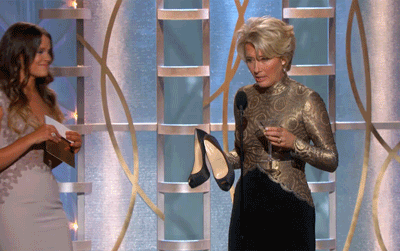
My hero.
Ah, bring on 39. Let’s do this thing. I’m going to be 40 before I’m published, and I figure it’s part of God’s cosmic joke to teach a certain young lady all things in good time. And if I decide I want to get all svelte? Here’s Valerie Bertinelli at 49.
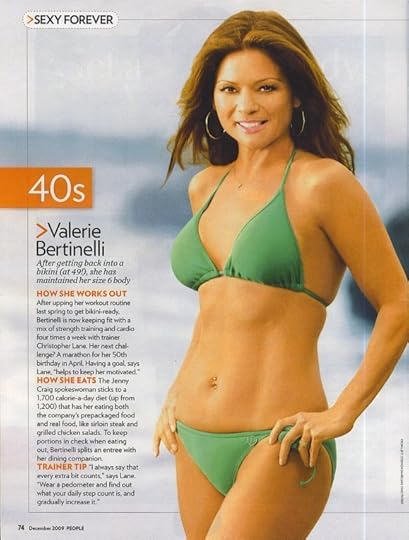
January 21, 2014
I Like Books Set In…
I love to read books set in exotic places. Always have. I especially love it when the author incorporates real places that I’ve been or could eventually visit. So, my latest release, Pregnant By Morning, takes place in Venice and I did a blog post at Harlequin Junkie talking about setting, and closed with a question along the lines of “What setting would make a great story?”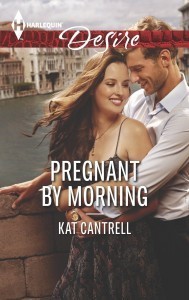
I got lots of really great answers. But then I got one that threw me. The commenter said, “I don’t care about setting.” I responded that it was a perfectly valid stance—because it is—and went on. Then I started thinking about it.
You know what? I don’t care either!
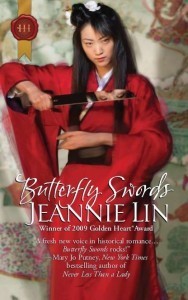 I bought Butterfly Swords by Jeannie Lin for the setting because oh my gosh ancient China sounded so intriguing to this historical romance lover. But honestly, I would have bought it anyway because Jeannie’s an amazing woman whom I dearly love.
I bought Butterfly Swords by Jeannie Lin for the setting because oh my gosh ancient China sounded so intriguing to this historical romance lover. But honestly, I would have bought it anyway because Jeannie’s an amazing woman whom I dearly love.
I’ve bought books set in England because I love the Regency period, books set in Savannah, GA because my husband is from there, books set in space because duh, they’re awesome, and books set on a boat in the middle of the ocean (The Reef, by Nora Roberts—go pick it up!!). But I purchased not ONE of these books solely for the setting.
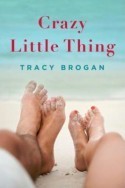
My reading decisions encompass so much more than that. Is it a story I think I’d like, starring interesting characters with unique dilemmas? Does the author’s voice make it a must read? (Tracy Brogan, I’m looking at you, with Crazy Little Thing!) Or maybe the book’s by an auto-buy author like Nora or Julia Quinn.
Kind of makes me look at the books I plan to write in the future in a different way.
Talk to me. How important is setting to you?


